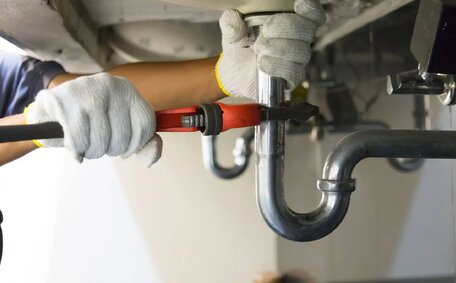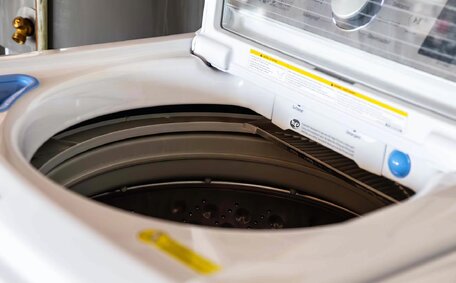Introduction to Cooking Habits and Drain Health
Everyday kitchen activities like boiling, frying, and baking can affect your plumbing as byproducts contribute to drain blockages. Food scraps, fats, oils, and other byproducts that go down drain or into garbage disposals can build up over time and contribute to clogs or slow drainage.
But preventing issues at the kitchen sink and the outside drain is the best solution. This guide offers troubleshooting tips and preventative measures to tackle blockages caused by everyday cooking habits.
We’ll examine common cooking techniques, what goes down sinks, signs of drainage problems, alongside DIY and professional tips for plumbing maintenance.
Mindful kitchen habits can protect your plumbing and contribute to better nutrition for your family. Continue reading to learn how to tackle potential blockages.
Common Foods That Clog Drains
Many everyday food scraps often end up affecting your drainage, whether intentionally or by accident. Over time, these materials can accumulate and cause annoying and expensive clogs in household plumbing.
Several common items found in homes are known for causing drain blockages:
- Coffee grounds - Their fine particles bind together and resist breaking down in the pipes, leading to clogs. They cling to your drain pipes where water can easily become trapped.
- Egg shells - Though small, these accumulate and solidify.
- Food fat, oil and grease - Fats liquefy when hot but later re-solidify within pipes as they cool, which can result in blockages as they pass through.
- Starchy items like rice, pasta and potatoes - These foods swell up, turn gluey when wet, and are notorious for causing blockage.
- Fruits and veggies - Hard bits of skin, seeds and fibres are not easily broken down in the drainage system.
Washing objects like the above mentioned, sanitary items, or small food scraps down your sink risks clogging, especially if materials catch on pipe joints or bends.
Remain vigilant while cleaning up post-cooking; residues left behind can lead to significant drain problems over time. Refer to the tips provided to manage your food disposals and ensure smooth drainage for years ahead.
How Different Cooking Methods Affect Drain Health
Your food preparation methods significantly influence the type of waste produced in the kitchen. High-heat cooking, a staple in food processing, often leaves problematic residues in your drains.
Frying creates oils and fats that harden and cling to pipes; avoid pouring these down the sink as they cool and solidify. Meanwhile, Boiling techniques used in food production can leach nutrients into the water, which often goes down the sink, carrying particles with it. Cooking at high temperatures for extended periods can dissolve more vitamins.
Consider the following breakdown of how cooking methods impact your kitchen sink:
- Boiling - Hot water washes nutrients and water down drain along with loose particles.
- Poaching - Gentler than boiling, but liquids still carry some waste.
- Steaming - condensed steam may deposit minerals in your drain, though they are less likely to cause blockages compared to boiled residues.
- Baking/Roasting - Drippings and crumbs build up over time.
- Sautéing - Oil, grease and bits of food wash down.
- Frying - Hot oil residues quickly clog drain lines.
Luckily, simple steps can be taken around the kitchen that dramatically improve the lifespan of your Carlingford home’s plumbing:
- Wiping Before washing, wiping pans prevents debris from entering the pipes.
- Grate covers can effectively trap food particles, preventing them from entering the drain.
- Proper disposal of cooking fats, oil, and grease, along with other debris, reduces the risk of clogs; refrain from pouring them down the sink.
Contact us today.
Best Practices to Avoid Clogged Drains
Avoiding clogged drains starts with developing thoughtful kitchen habits, such as careful disposal rather than to pour hot substances directly into the sink. Here are some best practises to prevent foreign objects from entering and to keep your drains and your Carlingford home’s plumbing running smoothly:
- Install a suitable sink grate with a channel cover and filters to capture food particles.
- Collect oils/fats after cooking and dispose in the trash, ensure no debris blocks your drains
- Avoid the common mistake of flushing vegetable peels, eggshells, and other food waste down the toilet by composting them when possible
- Flush drains weekly with boiling water mixed with baking soda and vinegar to dissolve substances that can cause blockages
- You should also use enzyme cleaners to dissolve organics that cause blockages, avoiding harsh chemicals
Even with diligent adherence to these tips, it’s time to accept that a drain still might clog over time. Signs that indicate it’s time to take action include:
- Water draining slower than usual from pipes indicates potential blockages
- Gurgling noises from pipes
- Sinks failing to more than dribble and not fully drain, suggesting a blockage your sink is experiencing
- Unpleasant odours from the sewer system
DIY drain clearing solutions include using a plunger, snaking the pipe yourself or employing a mix of baking soda vinegar for a fizzy unclogging agent. Avoid harsh chemical drain cleaners.
For professional assistance with issues like dairy products clogging your drains, Carlingford Plumbing offers reliable drain cleaning services to get your kitchen plumbing running smoothly again. Contact us today for affordable solutions.
Mitigating Existing Drain Clogs
If you already have a blocked drain, there are several methods to try unclogging it before calling a professional.
Use a Drain Snake
A drain snake, also called an auger, can take a long bendable metal wire to hook blockages and pull them out. Feed the snake down the drain and crank it to navigate drain pipes to get rid of clogs.
Boiling Water and Vinegar
Pour 1 cup baking soda down the drain followed by 1 cup hot vinegar. Then pour boiling water down a large kettle. The reaction between white vinegar and baking soda can also help break up grease while the hot water melts fats.
Make sure your mixture has time to work in your slot drain; let sit for 5-10 minutes.
Wet/Dry Shop Vacuum
You can use the vacuum in blower mode to force air down your pipes to dislodge clogs. Or suck up standing water to remove liquid based blocks.
Avoid chemical drain cleaners which can damage pipes and pose health risks with fumes. When safety is a concern, it’s time call professional aid from Carlingford Plumbing.
When to Call a Professional Plumber
While many minor drain issues can be addressed with simple DIY methods, the more difficult problems are best handled by a professional plumber such as Carlingford Plumbing.
The following signs indicate it’s time to seek professional help:
- Clogs persist after trying drain snakes, boiling water, baking soda/vinegar, etc.
- Multiple drains are backed up
- You have sewer odours or see water pooling around drains
- Your fixtures, appliances or toilets leak
- You need repairs to pipes, sinks, faucets or other infrastructure
Professional plumbers provide meticulous cleaning of your floor drains with the correct equipment, expertise, and experience, offering solutions beyond DIY methods.
Carlingford Plumbing addresses 24/7 emergency drainage problems in addition to offering scheduled appointments to residential and commercial customers in the Sydney area. Licenced, bonded and insured, our technicians can:
- Clear blocked kitchen, bathroom and laundry drains
- Inspect your sewer line with our advanced sewer cameras to identify blockages
- Hydro jet pipes to remove obstructions like tree root intrusions, hair soap residue, and debris in your plumbing system
- Replace corroded, damaged or leaking pipes/fixtures
- Install new stainless steel sinks, faucets, water heaters and other upgrades
Don’t wait for small issues to become big headaches. Call Carlingford Plumbing today at 1300 349 338 or email us to request drain cleaning or other plumbing repairs.
Maintaining Drain Health
Proactive maintenance of your drainage system is more effective than addressing clogs after they form. Adopt the following habits to maintain the health of your drainage system:
- Use drain catchers/strainers to collect food scraps when washing dishes
- Wipe down dirty pans and remove excess grease from your cooking tools & equipment prior to washing to avoid grease going down the sink
- Compost eligible food waste like fruits/veggie peels instead of using the garbage disposal
- The most effective routine is to flush pipes weekly by pouring 250ml baking soda down kitchen drain with 250ml vinegar, followed by 2-3 litres boiling water
- It’s crucial to avoid pouring grease directly down drains after cooking
Have your kitchen and bathroom sinks professionally inspected at least once month to prevent unexpected issues. Sewer pipe cameras help monitor for mineral deposits or intruding tree roots which can obstruct water flow over time.
At Carlingford Plumbing Services, your local experts, we offer affordable maintenance plans to keep home and business drainage running smoothly for years. Our licenced technicians also provide rapid response to any emergencies like burst pipes or sewage backups.
Don’t wait for small issues to become huge headaches. Contact our team today on 1300 349 338 for professional assistance maintaining your property’s essential plumbing.





